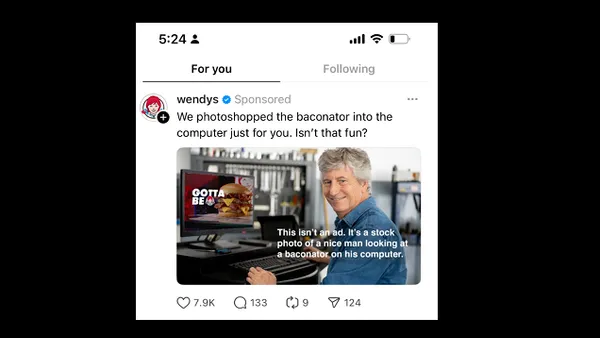Dive Brief:
- Google’s hope to beat offensive content on YouTube via technology might be an uphill battle according to a study from the University of Washington on Google’s Cloud Video Intelligence API, first uncovered by Quartz and reported by The Verge.
- The Cloud Video Intelligence API is in beta and not currently in use with YouTube content or any other Google products and is designed to use object recognition to allow clients to automatically classify the content of videos.
- The problem uncovered by the university research is the AI-driven tech is easily fooled by multiple insertions of what the study termed adversarial images into videos leading the tool to misclassify the main content of the video that viewers actually see.
Dive Insight:
The example provided by the research paper covered a video provided by Google titled Animals.MP4 and tagged with “Animal,” “Wildlife,” “Zoo,” “Nature,” and “Tourism” by the tool. The researchers added a series of individual frames of a car into the video every two seconds and the tool then reclassified the video with the tag, “Audi,” with 98% certainty.
The test is limited, and the tool isn’t currently being used to suss out offensive content on YouTube, but it appears that this particular attempt by Google at a tech fix for classifying potentially offensive content isn’t ready for prime time. AI technology is quickly advancing and it is possible Google will take these learnings and try to improve on the tool.
Recently, a number of brands and agencies pulled ads on Google properties over fear of that they would appear next to offensive content. Their concern is focused on not wanting to financially support site engaged in promoting terrorism or hate-mongering. Marketers are also afraid that consumers might associate them with a site's message, potentially resulting in a backlash against the brand.
Google is attempting to address marketers' concerns by allowing third-party monitoring while some brands and agencies are working to create whitelists of videos that are approved for advertisements. The ad boycotts are not expected to go on for too long given Google's significant reach and brands' desire to get in front of digital consumers. Any loss in ad revenue for Google is expected to be minimal. However, the longer the issue goes on, the more Google's image as a digital advertising leader is tarnished.














